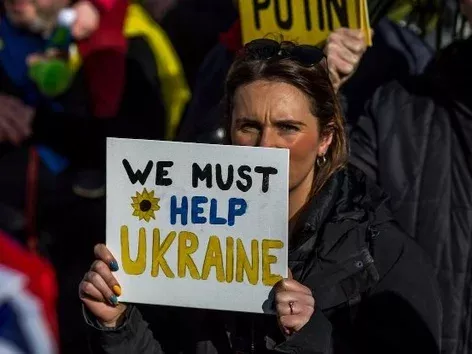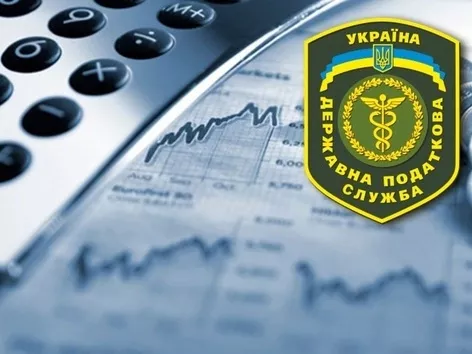
Ukrainian IDPs can receive rental assistance in 2024. Find out what criteria you need to meet to receive payments
Ukraine is launching a cash assistance project to support internally displaced persons. Funds will be allocated to help with rental housing. Here's who can count on support.
Where will the project work?
The project is being implemented in Vinnytsia, Dnipro, Vinnytsia and Dnipro regions. The aim of the project is to support IDP families after forced displacement and facilitate their integration and adaptation in new communities for six months.
The Right to Protection Charitable Foundation is currently collecting data to provide rental assistance in 2024.
Who is eligible for assistance?
Yes, financial support will be available to IDP families who were forced to move after the outbreak of full-scale war and have not yet received targeted rental assistance from international organisations, as well as those who belong to one of the following categories of people:
- IDPs residing in places of temporary accommodation (TACs) who are able to pay private rent after the expiry of the rental assistance programme;
- IDPs living in TACs under the threat of eviction, especially those living in schools and kindergartens, due to the return of these institutions to educational activities;
- IDPs already living in rented accommodation are under threat of eviction and have no alternative but to move to the CCs;
- Newly arrived IDPs (up to 1 year old at the time of registration in the project) who do not wish to reside in the CCs.
In addition, applicants must meet at least one of the vulnerability criteria:
- a family with one parent (priority will be given to a woman who heads the household alone), with one or more children under the age of 18 (up to 23 years if studying full-time or dual) or with elderly people (55 years and older);
- a family consisting of one/multiple single elderly persons (55 years and older) or elderly persons with one or more children under the age of 18;
- a family with one or more persons with special needs (disability, HIV, tuberculosis, serious medical condition (nervous system disorders, severe congenital malformations, rare orphan diseases, oncological, onco-haematological diseases, cerebral palsy, severe mental disorders, diabetes mellitus) of type I (insulin-dependent), acute or chronic kidney disease of the fourth degree, severe injuries, the need for organ transplantation, the need for palliative care); the presence of the disease must be confirmed by a medical certificate.
- Foster families raising unaccompanied children and children separated from their parents (documented);
- Households with three or more children under the age of 18 (not included);
- households with pregnant women or women with children under the age of three.
What are the conditions for receiving assistance?
All of the above target groups must be able to pay private rent at the end of the support period. To do this, they must have an understanding of the duration of the financial assistance and a plan for further activities to enable them to pay rent.
Recipients must also be able to find a rental property and pay the first two months of rent.
How to apply for the assistance?
Applicants must fill out an application form to participate in the project here.
Programme participants will receive funds to their bank account in three instalments. This bank account must be valid for at least another 6-8 months, and must also
▪️ belong to you;
▪️ be in hryvnia;
▪️ not be a social, credit, or ‘ePromotion’ / ‘eBaby’ programme account.
In the application form, you need to specify the bank account IBAN - UA + 27 digits (without spaces).
We remind you! This year, the UN Refugee Agency continues to provide financial assistance to IDPs and people affected by the war. You can find out more about what you need to receive funds and the application process here.
Recommended articles
2 min
Finance
Will Germany increase Bürgergeld payments to Ukrainians in 2025?
The amount of Bürgergeld civilian assistance payments depends on inflation and changes in wages. In 2024, the amount of social assistance was increased to 563 euros (for adults), but will payments be increased in 2025? Find out how the benefit amount is calculated and whether Ukrainians will be able to count on higher payments
02 Oct. 2024
More details4 min
Popular
Which countries are ready to accept refugees in 2024 and what kind of assistance to expect there
The European Union has hosted more than 4m Ukrainian refugees since the beginning of the full-scale war in Ukraine. Despite the large number of displaced people, EU countries continue to accept citizens in need. Find out more about which countries still provide temporary residence on their territory and what conditions are offered there
02 Oct. 2024
More details1 min
Finance
Ukraine starts checking citizens' accounts abroad: how it will work and who will be affected
On 30 September, Ukraine joined the international exchange of information on financial accounts based on the CRS standard. As a result, the provision of social benefits to refugees can be optimised, so that only those who really need it will receive assistance. Learn about the changes and categories of refugees who may lose their benefits
30 Sep. 2024
More details2 min
Insurance
Insurance in the Czech Republic: Who needs to have what kind of policy in this country
An insurance policy is an important document for those who are going to the Czech Republic. It is not only obligatory for visa application, but it is also a guarantee of safety in case of unforeseen situations. Find out what kind of visa visitors to this country should apply for and what you need to know about insurance rules in general
29 Sep. 2024
More details

